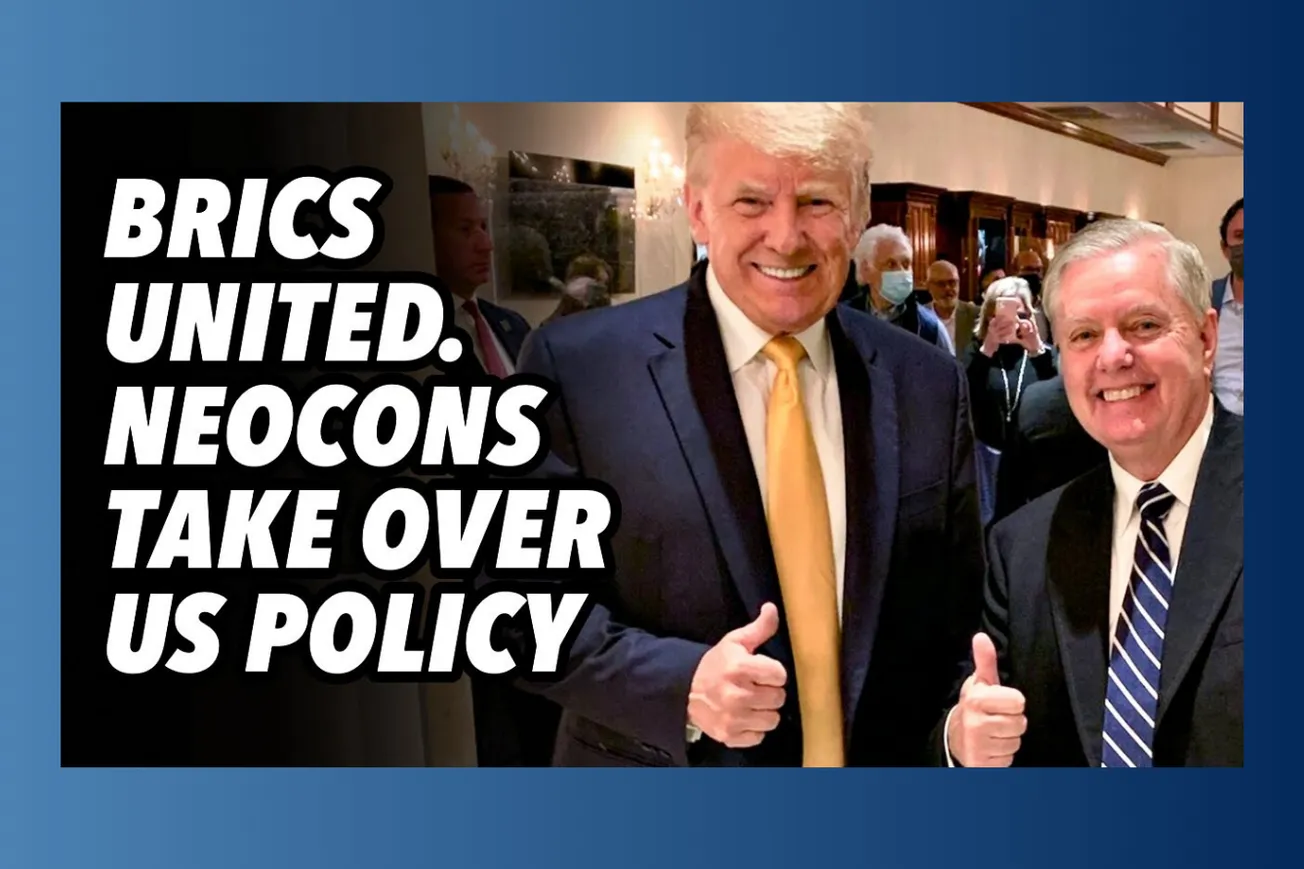Table of Contents
A stunning reversal sees Trump abandon campaign promises while BRICS countries strengthen ties against escalating US pressure.
Key Takeaways
- Trump's envoy Witkoff faces mysterious delays reaching Moscow amid mounting diplomatic tensions
- Senate neoconservatives led by Lindsey Graham have effectively captured Trump's foreign policy agenda
- The planned 100% tariffs on BRICS nations will backfire, strengthening their economic cooperation
- Trump openly admits his sanctions won't work yet proceeds anyway under Senate pressure
- India, China, and Brazil are deepening ties in direct response to aggressive US policies
- Ukraine's military collapse coincides with Washington's escalating commitment to a failing strategy
- McConnell and Graham prioritize donor interests over strategic coherence or campaign promises
- Trump has lost control of foreign policy decision-making as early as June 2024
The Witkoff Mission: Diplomacy or Theater?
- Trump's special envoy Steve Witkoff was scheduled to travel to Moscow on Sunday following visits to Israel and Gaza, but mysterious delays have pushed the trip to Wednesday or Thursday with no clear explanation for the postponement.
- Trump claims Russia invited Witkoff to Moscow, but no evidence supports this assertion from Russian sources, suggesting the initiative came entirely from the American side as Putin made clear in recent media comments during Lukashenko's visit.
- The timing appears deliberately orchestrated around the August 8th deadline for implementing 100% secondary sanctions on countries trading with Russia, creating artificial pressure for last-minute negotiations.
- Witkoff likely carries what amounts to an ultimatum rather than genuine diplomatic proposals, explaining Russian reluctance to engage in what they perceive as political theater.
- The envoy's mission serves primarily as political cover for Trump to later claim he exhausted diplomatic options before implementing economically destructive policies.
Senate Neoconservatives Seize Control
- The Senate Appropriations Committee, controlled by allies of Mitch McConnell, is advancing a $55 billion aid package for Ukraine embedded within the defense budget, directly contradicting Trump's campaign promise to end free weapons transfers.
- Lindsey Graham has emerged as the de facto architect of US foreign policy, wielding more influence over strategic decisions than he would possess as an elected president.
- Trump's capitulation became evident in June 2024 when he lost the initiative to the McConnell-Graham wing of the Republican Party, marking a decisive shift in power dynamics.
- The neoconservative faction exploits perceived divisions within the MAGA movement, using Trump's apparent weakness to advance their agenda while positioning him to absorb blame for inevitable failures.
- Despite retiring, McConnell continues orchestrating policy through committee structures, ensuring continuity of the interventionist agenda regardless of Trump's stated preferences.
The Tariff Gambit: Admitting Failure While Proceeding
- Trump repeatedly acknowledges that the planned 100% tariffs on countries trading with Russia will not achieve their intended objectives, yet continues moving toward implementation.
- The policy specifically targets BRICS nations, with China facing the most severe economic disruption given its extensive trade relationships and control over critical supply chains.
- India has already signaled continued Russian oil purchases while accelerating reconciliation with China, directly undermining the sanctions' strategic logic.
- Brazil's antagonization over the tariff threats pushes another major South American economy deeper into the BRICS orbit, exactly opposite to stated US objectives.
- Trump's public admission that "Russia will deal with it" and "it's not going to work" represents an unprecedented acknowledgment of policy futility before implementation.
BRICS Solidarity Strengthens Under Pressure
- Member nations are demonstrating unprecedented unity in rejecting US ultimatums, with each country publicly committing to maintain Russian economic relationships despite threatened consequences.
- China has begun restricting exports of rare earth minerals essential to US automotive and military-industrial sectors, following the playbook established during previous trade tensions.
- Indian anger over Trump's Pakistan policies combines with tariff threats to accelerate New Delhi's strategic pivot toward Beijing, reversing years of careful US cultivation.
- Brazil's oil trade with Russia, surprising given its domestic production capacity, reflects broader South American rejection of US economic coercion.
- The coordinated response suggests BRICS nations view this moment as an opportunity to assert independence from dollar-dominated trade systems.
Ukraine Reality Versus Washington Delusion
- Trump's bizarre casualty figures claiming 112,000 Russian deaths against only 8,000 Ukrainian losses since the start of 2024 demonstrate fundamental disconnection from battlefield realities.
- Senior senators including Graham and McConnell appear genuinely unaware of Ukraine's deteriorating military position, believing additional aid packages can somehow reverse the strategic situation.
- Pentagon and intelligence officials who understand the true situation find their assessments filtered through congressional staffers before reaching decision-makers like Graham.
- The $55 billion aid package matches Biden's previous $60 billion commitment that was exhausted within a year without meaningful battlefield improvements.
- Trump's acknowledgment to Zelensky that "you have zero cards to play" contradicts his administration's continued military commitments to an unwinnable conflict.
Political Calculations Drive Strategic Disasters
- Neoconservative senators prioritize maintaining donor funding streams from defense contractors over coherent foreign policy outcomes or electoral promises.
- The strategy exploits Trump's political vulnerability by positioning him to absorb complete blame for Ukraine's inevitable collapse while Graham and others maintain plausible deniability.
- Short-term political horizons of six months to one year prevent consideration of medium-term consequences like BRICS strengthening or economic blowback from failed sanctions.
- Graham's calculation centers on securing Trump's campaign support in South Carolina while avoiding responsibility for foreign policy failures.
- Key Trump administration figures including Tulsi Gabbard, RFK Jr., and JD Vance understand Ukraine's military situation but lack influence over policy decisions driven by Kellogg and external Senate pressure.
Trump's extraordinary weakness in implementing policies he publicly acknowledges will fail represents an unprecedented abdication of presidential authority. The neoconservative capture of foreign policy apparatus ensures continued escalation despite obvious strategic bankruptcy.





